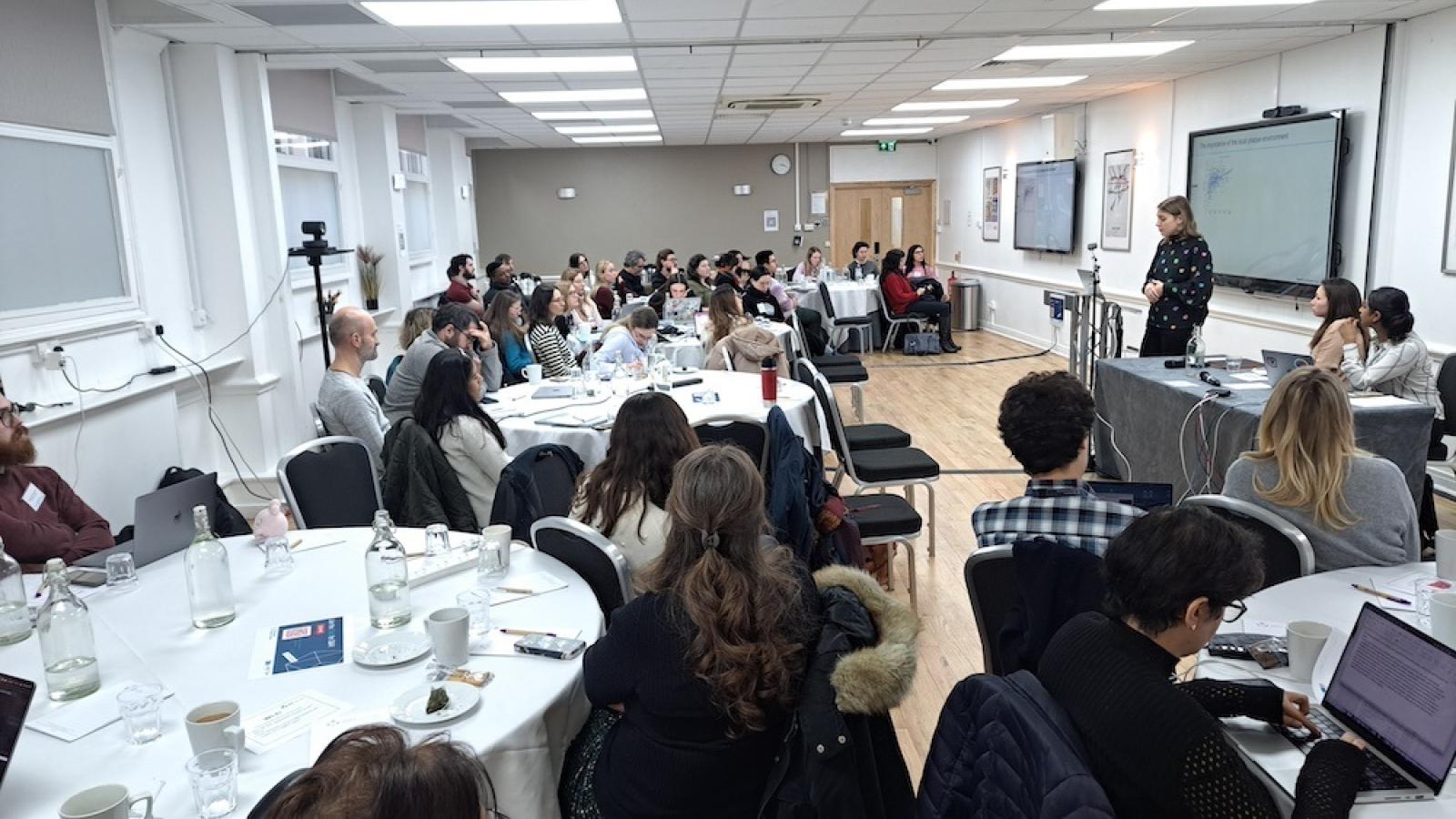Earlier this year, data scientists from the UK DRI and beyond gathered for an exciting course, jointly organised by the UK DRI and EMBL-EBI, aimed at equipping dementia researchers with the skills to access and analyse data.
Participants learned to apply bioinformatics methodologies, combine different data types, and utilise relevant dementia data resources, enhancing their research capabilities in the field.
One attendee, Dr Jing Qiu, Emerging Leader at the UK DRI at Edinburgh, said:
“My lab does a lot of omics work and deals with large amount of data, so I wanted to attend the workshop to find out the latest technology, tools and platforms that might be useful to our work. The workshop was very well-organised, and the contents were of high-quality.”
The course was unique, as it pulled together methodologies and resources specifically relevant to dementia research.
This course is the first to integrate data resources and methodologies for dementia research. It focused on dementia data resources, covering topics such as analysing single cell data and polygenic risk scores.Dr Amonida ZadissaUK DRI Associate Director of Informatics
Dr Qiu added:
“The biggest surprise I learned from the course was that ChatGPT not only writes creative articles, it can even be used as a tool for coding! Overall, I found the workshop timely, informative and thought-provoking, and I believe it will definitely benefit my current and future research.”
The course was open to external attendees, and scientists from other academic institutions, as well as industry, participated in the workshop.
Of her experience, Dr Elisa Molinari, Associate Director – Gene therapy and Rare Disease Translational Scientist at Lilly, said:
“Although five days is too short to learn everything about bioinformatics, the practical sessions supported by Jupyter and R Markdown notebooks, compiled by the instructors with their own scripts, were invaluable. These resources, made available after the course, allowed me to walk away with scripts that I can readily apply to my data and which are no longer a black box to me, because I understood the basic concepts during the theoretical and practical sessions.”
Nasser Karmali, PhD student at DZNE, added:
“As a beginner in bioinformatics, I attended the course to gain a foundational understanding that I will apply during my PhD. I was particularly interested in learning about the various databases and tools that could assist me with my analysis.
Meeting other scientists from other countries was a significant aspect for me. I was also curious about the UK DRI and wanted to get to know the organisation better. The highlight of the course for me was discovering the extensive range of tools and portals provided by the EMBL-EBI. I had no idea that these resources existed, and I am excited about utilising them in my research.”
The workshop will be held every other year with the next one taking place in spring 2026.
Article published: 12 August 2024
Banner image: Copyright UK DRI Ltd.
